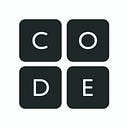5 questions with Google’s Sanaz Ahari Lemelson
In honor of Women’s History Month, we’re profiling women in technology throughout the month of March. We hope sharing these stories will encourage girls and young women to start or continue studying computer science!
Sanaz Ahari Lemelson works as a Senior Director of Product at Google. In this role she gets to work on products more than 2 billion people use everyday, from Gmail to Google Calendar and more. She studied computer science in high school and later received a computer science degree from the University of Victoria. Prior to working at Google, she spent 7 years at Microsoft managing programs at MSN, Live.com and Bing.
Let’s hear from Sanaz!
Can you tell us where you work and what you do in your current role?
I work at Google as a Senior Director of Product. I am responsible for communication products across Google Workspace and Android. This includes Gmail, Google Meet, Google Calendar, Google Chat, Google Voice, Google Messages, Google Duo and Google Phone apps.
How did you first become interested in computer science?
My brother loved computers since I was very young and most of my exposure at a young age was through him. I was exposed to programming in my senior year of high school with Visual Basic. Once I started university, I took more computer science classes in my first year and really enjoyed the process of coding and building something and solving problems and decided to pursue it as my degree. I’ve always loved puzzles and I largely viewed a lot of different aspects of coding as solving puzzles.
What barriers, if any, did you encounter on your journey learning computer science? What barriers, if any, do you still encounter in the workplace?
I was surrounded by classmates where it seemed a lot of the work came natural to them or they grew up programming at a much younger age. In my senior years, I was the only girl in my classes. I acknowledged that some kids were perhaps more naturally gifted and I had a personal motto of “hard work.” I just expected the best from myself and stopped comparing myself to others, and simply focused on pushing myself. I wasn’t phased by the fact that it may take me longer to get something done, but that my output would be the best.
I fell in love with product management, which is more around product strategy and prioritizing what to actually build, when I interned at Microsoft. I decided to pursue product management full time after graduating with a computer science degree. I’ve encountered a large set of barriers in the past 17 years. However, whenever I hit barriers or anything that feels difficult or unjust, I rely on two things 1) gratitude for what I get to do everyday 2) where there is a will, there’s a way and conviction around solving a problem. I never give up.
Can you tell us about someone (or a group or organization) who encouraged you to study computer science?
My dad was my biggest influence in studying computer science. I wanted to pursue law or become a doctor, and he convinced me that computer science had a bigger future. My brother was also a huge influence in me getting a more concrete sense of computer science.
Do you have any advice for girls or young women who want to start learning computer science?
Anyone can learn computer science and excel at it. The most important thing is the desire to start and learn. Once you’ve started, you’ve accomplished the hardest part — then focus on learning and exploring the vast set of opportunities. Anything that gets in your way, whether it’s stigma that coding is for wiz kid boys, or that you aren’t going to excel, are largely mind games that are best ignored.
Thank you for your insight, Sanaz! Stay tuned for the next installment of our Women’s History Month “5 questions with” series coming next week. You can read our previous interview with Adafruit’s Limor Fried here.
Find more resources for inspiring girls and young women to learn computer science here.
-Kirsten O’Brien, Code.org
